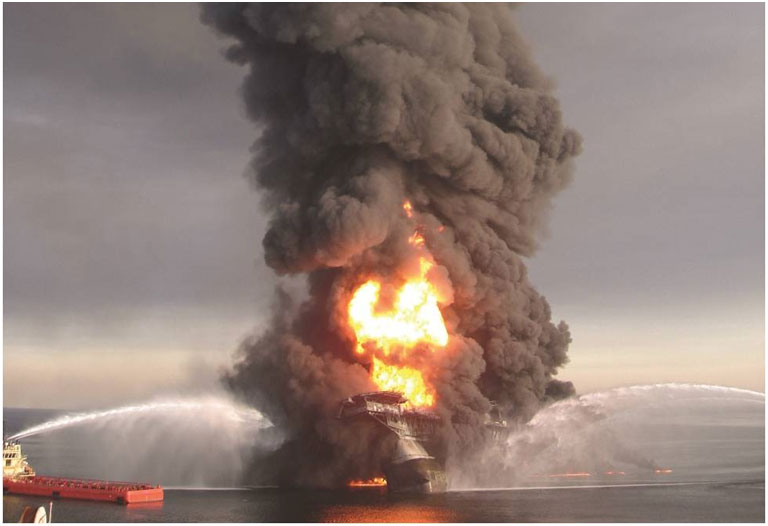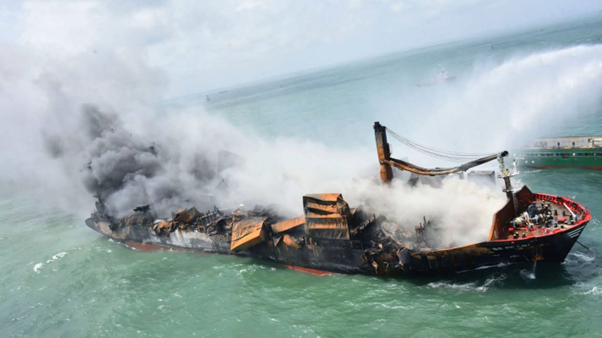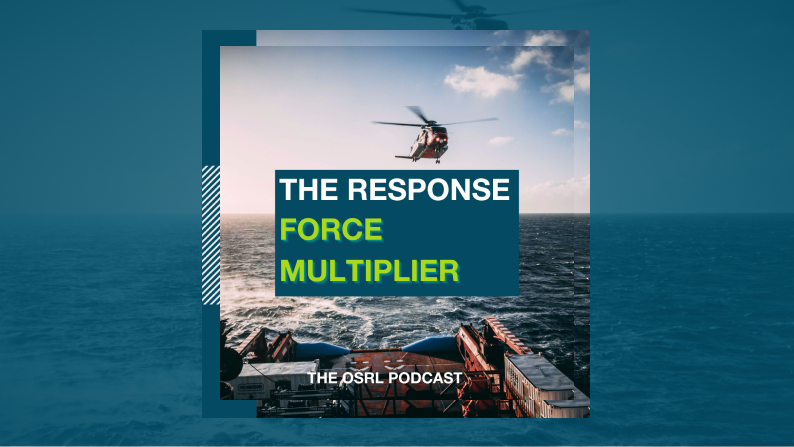The Rogue States – The Next Big Oil Spill Risk?
We seriously hinder our ability to effectively prepare for and respond to crisis events while sanctions and competing public relations play out on many social and mainstream media platforms.
Rogue states such as Iran and Venezuela have long aspired to become energy superpowers. From George Reynold's first discovery of oil in Iran in 1908, Iran became a significant oil producer with a sprawling offshore and inland infrastructure to support it. In Venezuela, the Venezuelans used natural bitumen seepages to caulk vessels for hundreds of years before oil exploration began in earnest in the same year as Iran. The vast reserves located in the south-west region of Khuzestan in Iran and around Lake Maracaibo and the heaver oils of the Orinoco Belt in Venezuela should have made both countries oil superpowers.
However, this is not the case. International sanctions have hugely impacted exports from these two countries. Consequently, much-needed oil and gas infrastructure investment in Iran and Venezuela is lacking, and the countries are heavily reliant on old assets. Furthermore, the significantly reduced number of oil tankers willing or even allowed to service these export markets are not undergoing IMO informed Port State Control inspections elsewhere to verify their condition and equipment.
More recently, in Yemen, the Houthi faction has effectively used an ageing tanker, the FSO Safer, as a bargaining chip in negotiations with international bodies seeking a ceasefire.
These situations increase the risk of oil spills in these and other similar countries, with potential consequences on nearby countries sharing a maritime border. For example, over the last year, we have seen repeated 'mystery spills' enter the waters of the United Arab Emirates; to date, these have been mainly sheens which dissipate naturally. Similarly, there have been historical 'mystery spills' in the Caribbean Sea just off South America's north coast.
Are these small events a harbinger of a looming catastrophic oil spill? At the northern end of the Arabian Gulf, an oil leak from ageing infrastructure on the median line with the Saudi Arabia waters would threaten Saudi Arabia's coasts and Kuwait and Iraq. Meanwhile, in Venezuela, the release of heavy oil into the Orinoco River would have consequences on the coast of Trinidad and Tobago and Guyana.

We Don't Know What We Don't Know
As sanctions continue to limit experienced international personnel from bringing maintenance and good practice to bear in oil-producing states under sanctions, we have no quantification of the risk of a catastrophic event occurring in these fields.
Strained relations mean that we may get little or no warning of incidents when they do occur; the first adjacent countries may hear about a spill event is likely to be once a black tide of oil starts entering their waters.
Even then, there may be sparse information as to whether the approaching oil is from a spontaneous release or an ongoing discharge. And if it is the latter, how long will the discharge last and at what volumetric flow rate until secured?
National Contingency Plans (NCPs) tend to only deal with foreseeable events within that nation's territorial waters. Equally, licencing facilities in a nation's waters relates purely to the risk from that facility itself. As a result, there is the potential that nearby jurisdictions not involved in the risk assessments of bordering facilities are under-prepared to counter the threats just over their horizon.
Who Owns the Problem? (and Who Pays for the Solution?)
Can we, indeed should we, prepare (and effectively become responsible) for someone else's spill?
The answer must be an unequivocal "yes" when there is a threat to our countries' environment and socio-economic wellbeing. However, international treaties on cost recoveries and liabilities are potentially no longer in place where sanctions are concerned.
Does responsibility for planning and resourcing for a spill from neighbouring waters rest with the government?
Or is this delegated to the industry? Especially where the field operators are a state-owned company in any case?
To what extent can Mutual Aid agreements be facilitated and actioned under sanctions? Or does a vessel straying over the meridian pursuing an oil spill risk being impounded and held to ransom?
There appear to be more questions than answers at present.
Regional Cooperation Works
Regional clean seas organisations facilitate oil spill preparedness and response activities in many areas of the globe. This facilitation coordinates regional Tier 3 exercises and provides response services such as satellite surveillance. In addition, technical experts maintain data quality management working on the response deliverables and sharing this information with all parties involved.
These bodies act as the custodian of crucial emergency contact information for multiple countries and provide a repository of information such as National Oil Spill Contingency Plans and mutual aid agreements. Moreover, by focusing on a regional scale, these organisations overcome nationalisation issues and facilitate transboundary cooperation, not only for maritime boundaries but also for land borders.
Equally, the IMO: IPIECA Global Initiative continues to do excellent work in bringing governments and industry together with an objective, amongst others, on improving cross-border cooperation in spill management.
However, it is fair to say that some regional clean seas organisations are more proactive (and well-funded) than others. The Global Initiative does not yet, cover the entire globe.
Uncouple Crisis Management from International Politics
We seriously hinder our ability to effectively prepare for and respond to crisis events while sanctions and competing public relations play out on many social and mainstream media platforms. Crisis management should be considered a human imperative and transcend international politics and disputes between neighbouring states or global antagonists.
Countries around these so-called rogue states must not be complacent. Preparedness, as always, is critical. Governments should ensure their plans are current. They should also have access to equipment and personnel and the necessary processes, documentation, legislation, regulations in place, and up to date in the case of an oil spill. In addition, they may need to update legislation on which vessels can travel in their waters.
Exercise is Good for You!
Whatever the question in oil spill preparedness and response, the answer is to exercise. Table-top explorations of worst-case scenarios will help to drive our thinking and tease out the issues. In addition, the oil industry needs to work closely with governments and tap into the resources that the likes of IPIECA and IOGP on the industry side and IMO and IOPER on the government side can bring to the party. Regional clean seas organisations also have an essential part to play in facilitating this dialogue.
Be Brave, Be Honest
Spills in neighbouring countries waters can easily be seen as someone else's problem and get firmly locked away in the "too hard" drawer. Ultimately, though, individual national governments must take the initiative to accept that the risk is real and prepare to respond to an incident that will not be of their making.
We've got you covered!
Wherever in the supply chain your oil spill risks lie, we are ready to respond with our expertise and resources anytime, anywhere with our Member Response services.






